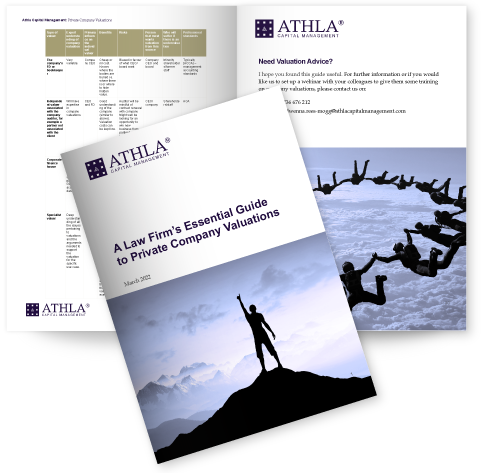Will Growth Share and EMI valuations change in 2024?
January 16, 2024

The general trend sadly is still negative for many businesses, so even more care needs to be taken to get it right
As you will know, it is common to rely on Discounted Cash Flow (DCF), and Monte Carlo simulation (MCS) valuation methodologies when dealing with Growth Share valuations and sometimes for EMI or other share option valuations.
DCF methodologies are impacted by the Weighted Average Cost of Capital (WACC), which is dependent on both bond yields and market returns (the cost of debt and the cost of equity). The increases in interest rates coupled with the scarcity of private capital available, has led to both the cost of debt and the cost of equity rising considerably in the last 12 months.
Pushing up the weighted average cost of capital increases the discount that is applied to future cashflows, thereby reducing the valuation relative to a situation where the WACC is lower. This is an expedited summary!
If you would like us to train your team on how DCF valuations work, let us know.
In summary however, assuming everything else is equal, for companies that used a DCF valuation method 12 months ago or more, it is highly likely that a valuation using the same approach will now be lower because of this factor.
Did you know that it was only in 1964 that Monte Carlo valuation methods were introduced to the world of corporate finance by David Hertz in his article “Risk Analysis in Capital Investment” in the Harvard Business Review. Then in 1977 Phelim Boyle led the way in the use of simulation pricing in his paper “Options – a Monte Carlo approach” in the Journal of Financial Economics.
Despite being relatively recent as a valuation methodology, Monte Carlo simulations are very useful for Growth Share and share option valuations, provided you have the data so that they can be computed.
The Monte Carlo simulation valuation approach predicts the probability of outcomes by simulating 10,000s of valuations dependent on random variables when outcomes are uncertain. It is not atypical for a Monte Carlo simulation to run 50,000 valuations. (Don’t try this at home unless you have a very powerful computer).
As you will know the outcomes of a company that is using Growth Shares or options is usually very uncertain, so doing so many valuations somewhat compensates for this unknown variability.
Whilst not a perfect methodology, it is still a very helpful way of estimating the value of Growth Shares, incorporating an element of randomness to reflect uncertainty in the eventual outcome. As with a DCF valuation, Monto Carlo simulation valuation methodologies are impacted by the inputs used. If inputs are suggesting a downward trend in valuation, overall, the Monte Carlo simulation results will be dragged lower.
Therefore, we are expecting that valuations for companies in 2024 could well be lower using this methodology too, when compared with 2023 and assuming the financial prospects for the company has not altered due to operational performance differences.
We do a lot of Growth Share valuations and more complex share option valuations. Indeed, our team has just started the first annual revaluation of a Growth Share scheme for a long-term client. It will be ready at the end of the week.
We are very mindful in every Growth Share or EMI valuation that we need to consider macro factors such as interest rates, inflation availability of capital and evidence our results. It will be particularly important to pay close attention to this issue in 2024, because market conditions in private equity have changed so markedly in recent months.
Most sectors in the private capital markets are more constrained, with the notable exception of AI, where it is boom time. Even popular other software sub sectors have seen valuations dip and capital become scarcer.
What this means is that historical valuations may now be very inaccurate. Especially if your clients are proposing an issuance of Growth Shares or share options, it is worth talking to them about whether the valuation they propose to use will stand up to HMRC tests. If it is outdated, it may not. Using approaches like the last funding round valuation may be very out of date indeed.
We are always around to answer questions from your team or your clients about valuations. No question is too small and we specialise in explaining matters relating to valuation in plain English. So, give us a call anytime, if you think we can help.
As well as more standard valuations, we continue to specialise in tricky situations where getting the valuation right is critical. And our standard timetable for a valuation is a week.
We love challenges and it’s always good to hear from you. You can call me on 07736 676 212 or email modwenna.rees-mogg@athlacapitalmanagement.com.


